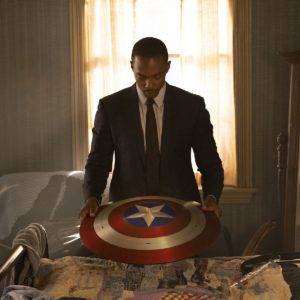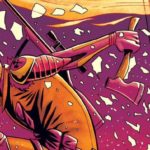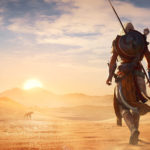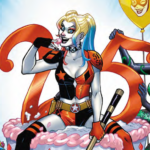
I’ll admit that I was skeptical about a show that would attempt to follow the events of Avengers: Endgame (2019). Endgame was cathartic and conclusive in all the right ways, and it seemed wrong to tamper with the finale of Steve Rogers’ legacy. However, the first two episodes of The Falcon and the Winter Solider (2021) have been a pleasant surprise; it’s a show that is witty, thought-provoking, and action-based in all the ways that a good MCU show should be.
In the first episode, “New World Order,” it has been six months since the Blip. After returning from a mission in Tunisia, in which he thwarted Georges Batroc (Georges St-Pierre) and the terrorist group LAF, Sam Wilson (Anthony Mackie) decides not to assume the mantle of Captain America. He leaves Steve Rogers’ (Chris Evans) shield in a museum display case under the care of the U.S. government. Sam tries to return to an ordinary life by assisting his sister Sarah (Adepero Oduye) in reviving the family business. Meanwhile, Bucky Barns (Sebastian Stan) struggles to process his trauma through government-mandated therapy sessions and attempts to make amends for crimes committed in his past life as the Winter Soldier. Conflict is not far off, however, as a group of terrorists known as the Flag Smashers start to make waves in Europe, and the U.S. appoints Johnny Walker (Wyatt Russell) as the new Captain America.
thwarted Georges Batroc (Georges St-Pierre) and the terrorist group LAF, Sam Wilson (Anthony Mackie) decides not to assume the mantle of Captain America. He leaves Steve Rogers’ (Chris Evans) shield in a museum display case under the care of the U.S. government. Sam tries to return to an ordinary life by assisting his sister Sarah (Adepero Oduye) in reviving the family business. Meanwhile, Bucky Barns (Sebastian Stan) struggles to process his trauma through government-mandated therapy sessions and attempts to make amends for crimes committed in his past life as the Winter Soldier. Conflict is not far off, however, as a group of terrorists known as the Flag Smashers start to make waves in Europe, and the U.S. appoints Johnny Walker (Wyatt Russell) as the new Captain America.
In the second episode, “The Star-Spangled Man,” we get an introduction to Walker and his aspirations to live up to the role of Captain America. Sam and Bucky argue about Sam’s decision to give up the shield, before heading to Munich where they clash with the Flag Smashers and the group’s leader Karli Morgenthau (Erin Kellyman). The titular pair discover that the Flag Smashers are comprised of super soldiers who outmatch them. During the fight, Walker and his companion, Battlestar (Lemar Hoskins), arrive and offer to join up with Sam and Bucky, who refuse. Back in the States, Bucky introduces Sam to Isaiah Bradley (Carl Lumbly), a Black super soldier and veteran of the Korean War who was subjected to imprisonment and experimentation by both the U.S. government and Hydra for 30 years. After Bradly refuses to help Sam and Bucky gain information on the Flag Smashers, Sam and Bucky again argue about Sam’s decision to give up the shield. At the end of the episode, Bucky suggests that they pay a visit to Helmut Zemo (Daniel Brühl).
One of the aspects I appreciate most about The Falcon and the Winter Solider is its particular attention to Black representation. This comes out in in multiple instances in Sam’s storyline. For example, a condescending banker turns down his family application for a loan. He is also met with casual racism throughout the show as characters repeatedly treat him with disrespect before realizing that he is The Falcon. Sam’s arguments with Bucky suggest that Sam’s Black experience gives him a different perspective on the responsibilities of the Captain America role, and this is a theme I look forward to being explored further as the series progresses. Also, the introduction of a Black super soldier–the character of Isaiah Bradley–to contrast with the storylines of the white super soldiers is a compelling concept.
Another interesting facet of the first two episodes is Bucky’s experience with trauma from his past life as the Winter Solider, as well as his efforts to make amends. The first episode focuses on his efforts to undo his past actions according to the guidelines his therapist has given him: 1.) nothing illegal; 2.) no one get’s hurt; 3.) no longer act as the Winter Solider. Furthermore, Bucky’s friendship with his neighbor Yori Nakajima (Ken Takemoto) develops out of guilt over the fact that he killed Yori’s son on a mission as the Winter Solider.
While the animosity between Sam and Bucky seems contrived at times, a lot of the dialogue in the relationship is both clever and hilarious (“How do you know about Gandalf?” “I read The Hobbit in 1937 when it first came out”). As antagonists, the Flag Smashers do not seem to fall within the “big three” category (aliens, androids, and wizards) that Sam claims all villains are apart of, but they are nevertheless fascinating as a group of terrorists acting on the premise that life was better before the Blip. It will be interesting to see how the partnership between the two main characters grows in future episodes, as well as how the new characters develop and interweave with the plot threads.





One thought on “[REVIEW] ‘THE FALCON AND THE WINTER SOLDIER’ EPISODES 1 & 2”